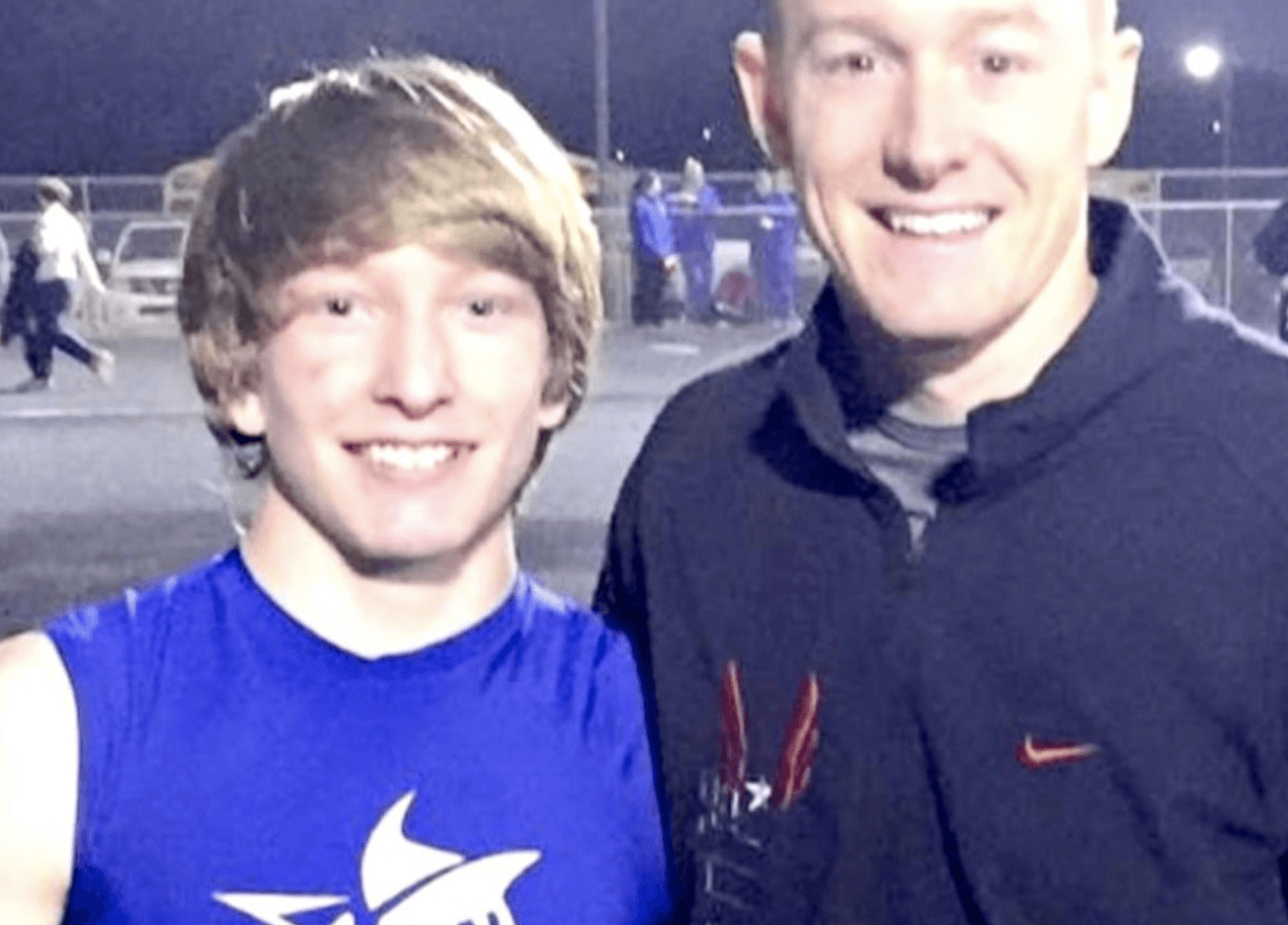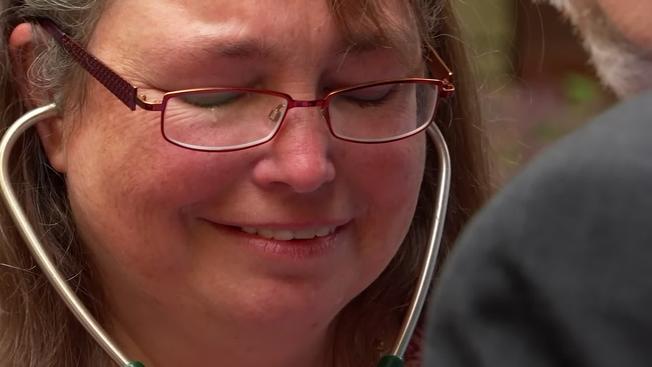It was just another normal night for Cassondra Singleton and her family. They had all come so far together since the 2006 death of Sergeant Ronald Singleton, Cassondra’s husband and the father of their five boys. Ron had been deployed with his Texas Army National Guard Unit when he’d fallen ill, and 14 months later he lost his fight.
Cassondra mustered up every ounce of strength she had to move forward after Ron’s brave battle against leukemia ended. Exhausted from the long struggle, weakened with grief, Cassondra pulled herself and her five young boys together and helped them carry Ron’s love for them into a new life. Now they were enjoying that life, including a new love.
Cassondra Singleton is now engaged, and her fiance Robert is carrying on Ron’s path of loving and supporting this special family. That night in November 2016, Cassondra was picking one son up from band practice and planning to drop him home before returning to Joshua High School, where her fifteen year-old son Aaron was playing football.
Her mind was on her family and the night ahead.
Brimming with love for all of her boys, she savors each moment with them. That night was to be about Aaron – the lively, popular, fearless boy who threw himself into each day as if he couldn’t get enough of life.
Aaron sang in the Varsity choir, played on the school’s football team, performed in the band, and maintained an Honor Student status. He was a shining example of defining his life not by tragedy, but by opportunity. He assumed responsibility for his own happiness and made it his mission to help others through their struggles by sharing his energy and his strength when he saw someone feeling down. “He was amazing,” Cassondra says.
Football is a high impact sport. Aaron had taken his share of hits before.
It wasn’t easy to watch her son take those hits but he was so strong and so determined to play. He always assured
He’d never had a seizure before. Fear coursed through her as she made the twenty-minute drive back to school. The ambulance was already there. Her parents had arrived, too. Aaron was responsive as he was loaded into the ambulance. By the time he got to the hospital, he was no longer responsive.
“It was really hard to hear that,” Cassondra remembers. “I knew that wasn’t good.” Hours later, surrounded by family and friends, Cassondra heard her worst fears confirmed; nothing more could be done. The impact of the hit had caused bleeding in Aaron’s brain. The injury could not be repaired with surgery.
“That’s when we knew he was going to die.”
Cassondra pushes forward through the pain to share the memory of that night. Even through her sorrow, she emphasizes the positive. She speaks of the valiant efforts of the doctors and of the instant, unwavering support of the community. And she speaks of the opportunity to refuse a sudden tragedy to outshine strength and hope.
Aaron took good care of himself. He was a healthy boy who sincerely wanted to help people enjoy their own lives. He strived to do everything he could to the best of his ability. Now Cassondra knew she could help her son offer one more gift to help other people.
“As hard as it was for me to know my son was going to die – There was nothing we could do about it – We knew other people could live, and that meant a lot to us.”
There was no second-guessing. No hesitation. No doubt in anyone’s heart or mind that this is what needed to happen now. Aaron’s tissues and organs were donated to people whose lives depended on just such a gift. Because of thig selfless gift, other families have been spared the pain of loss.
The Singletons have met some of those recipients and their families.
Aaron’s gift shines forth in each of those faces, and beats in the chest of the person who now has a new chance at life. Those meetings and the new friendships formed with some of the recipients brings comfort to Cassondra and strengthens her in her struggle to adapt to the loss of the son she loves so fiercely.

The Singletons took their strength one step further by donating Aaron’s brain toward the first ever research on a high school athlete’s brain, after such an incident.
The Singleton’s strength and Aaron’s gift has enabled groundbreaking research into a highly lethal condition known as second impact syndrome. A collaborative effort between teams of researchers at the National Institutes of Health (NIH) and the Dartmouth Hitchcock Medical Center, initiated by Practice Like Pros, may produce the results of this research before the end of 2017.
Dr. Robert Cantu, of the Concussion Center at Emerson Hospital, is a passionate advocate for preventing these injuries and losses in athletes of all ages. Speaking at a 2017 event before thousands of high school students eyeing a career in medicine, Dr. Cantu explained the dangers of high impact sports on young bodies.
He has written a book on the subject and he is an NFL consultant – admittedly not always popular within the NFL for his staunch position on protecting athletes from hard hits. Now he is part of the research team studying Aaron Singleton’s brain.
This research could save lives.
It could also answer a difficult question about Aaron’s death – if he was still suffering from an unrecognized concussion when he took the second hit that killed him. The potential to answer this question and learn about the injury that continues to kill high school students every year is important. Simply by recognizing the symptoms and enacting safer protocols, other families will be spared this pain.
All the research and all the medical advice in the world amount to nothing if the advice and findings are not heeded.
As high schools across the country resume class and athletes take back to the fields, Cassondra Singleton will pass by a statue created to honor her son instead of watching him from the stands.
While she carries the comfort of the lives he has saved as well as the knowledge that both Aaron and Ron would want her and their family to live full lives, Cassondra has one more hope.
She hopes that parents, athletes, coaches, and trainers hear Aaron’s story and others like it. She hopes they remember Aaron and pay a little closer attention in their own lives, to the often-overlooked symptoms that could claim another young life.








Reader Interactions